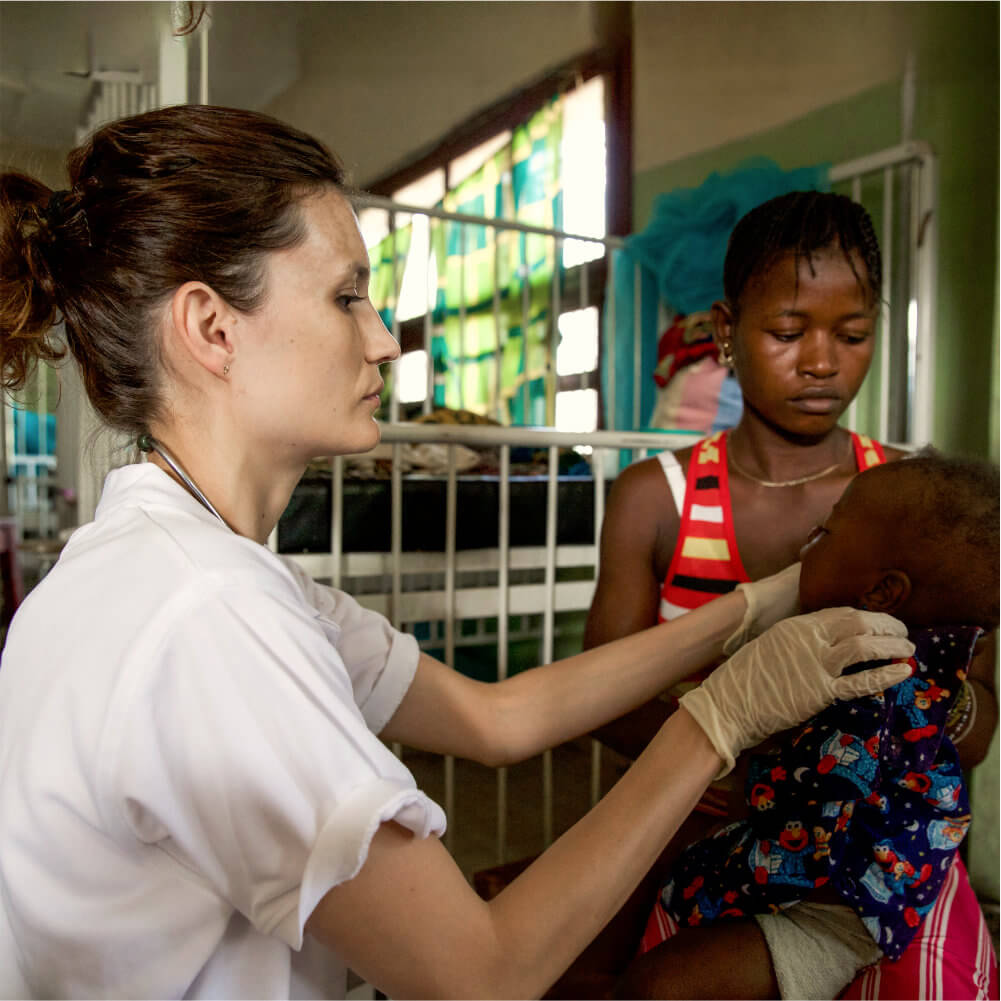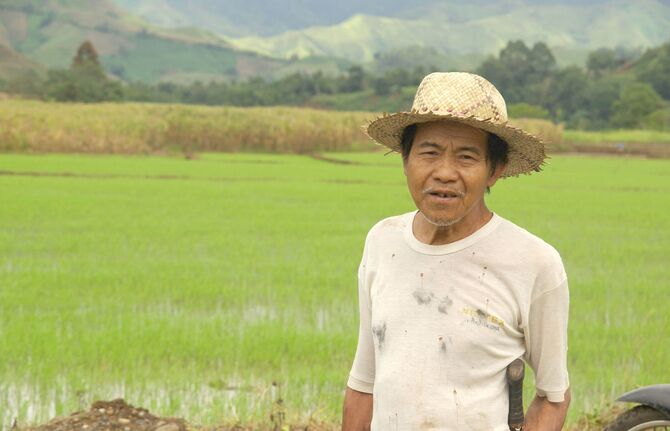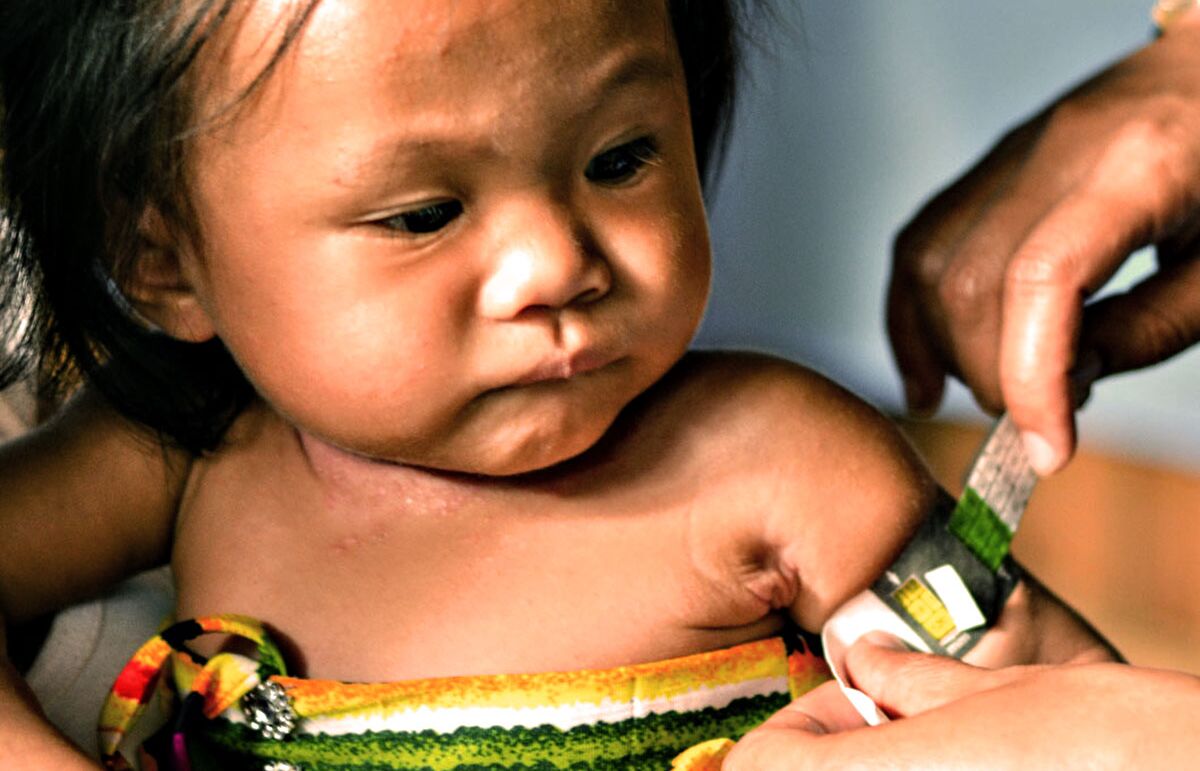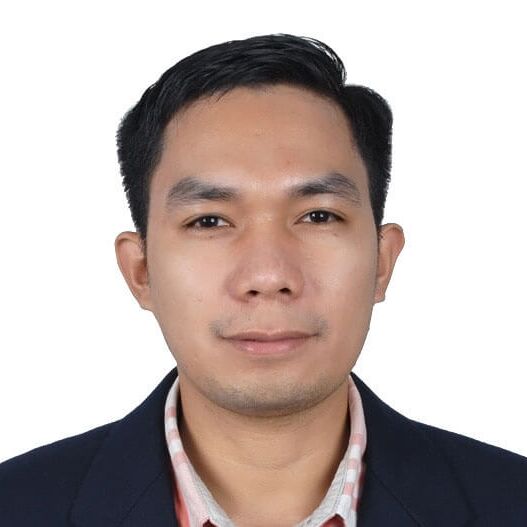




Life in seclusion
This means walking for several hours with a baby on your back and leading a child by the hand until you reach the only road in the region, where you hope to catch a bus. For many Buda Hospital patients this is not a rare occurrence. In this medically neglected region, people are genuinely grateful to have high-quality medical care on site. Beyond the highway connecting the northern provinces Misamis Oriental/Bukidnon and the southern province Davao del Sur, widely distributed little settlements are located in a hilly and rugged mountainous landscape with ravines. The region is classified as ‟geographically isolated and underprivilagedˮ (GIDA) and counts as one of the poorest in the Philippines.
Seven kilometers on foot to the closest primary school
The indigenous tribes, the Lumads and Dumagats, live there under very modest conditions in wooden huts and often without access to electricity or running water. They are marginalized, and their rights to raw materials, education, development, and healthcare are often neglected. The results: state programs hardly reach them, and only few have the chance to escape from poverty. This is not surprising, when you consider that even the youngest pupils often have to walk many kilometers to the next primary school. Many families living off what they can grow cannot afford higher education.
Their high degree of seclusion and lack of medical provision was why we built the hospital in 2006 with the support of the German Federal Ministry for Economic Cooperation and Development (BMZ).
Combating malnutrition
Undernourished children are especially susceptible to infections and developmental disturbances. Therefore, we supply malnourished children with so-called Nutripacks. This additional vitamin- and mineral-rich nourishment based on rice and mungo beans strengthens the children’s immunity and helps them gain back weight.

Help for undernourished children
Thanks to the improved medical care and health education, the widespread undernourishment in the region has generally decreased. Only few women bring undernourished children, often with fever and diarrhoea, to the clinic in Buda after a long march on foot. Here they first receive milk and then high-calory peanut paste. When they are stabile, they can be discharged. Injuries from traffic accidents are also regularly treated in Buda, as well as pneumonia, urinary-tract infections, typhoid fever, gastro-intestinal diseases, and dengue fever. Chronically-ill patients, many of whom are aged, regularly come for examinations and to pick up their medication.

A strong local partner
Volunteer Swiss and German Doctors have treated patients in the Buda Hospital and trained personnel for years. Unfortunately, this has no longer been possible due to the insecure safety situation on the island since 2017. The danger of foreigners being attacked or kidnapped is simply too great. President Duterte declared martial law on Mindanao in May, 2017, after a group affiliated with the Islamic State (IS) captured the city Malawi. About 500,000 people fled from the battles. Martial law was cancelled in January 2020.
Good news: our strong Philippine partner, Committee of German Doctors for Developing Countries Inc., has continued to run the hospital with local personnel. The years of training have paid off, especially in obstetrics. This illustrates our motto, sustainable aid!
Overview of our Help
- Basic medical care for marginalized people
- Prenatal care and safe delivery for pregnant women
- Prevention and health education
Partner
Committee of German Doctors for Developing Countries Inc.

‟The hospital has played an important role in improving the health situation in the region over the years. We see undernourished children less often and only registered two cases of maternal mortality in our hospital in the last four years. Prevention and patient education, aside from correct diagnosis, treatment, and immediate referral, also play an important role.ˮ
Dr. Jaymart Costillas,
Medical Director of the Buda Hospital





